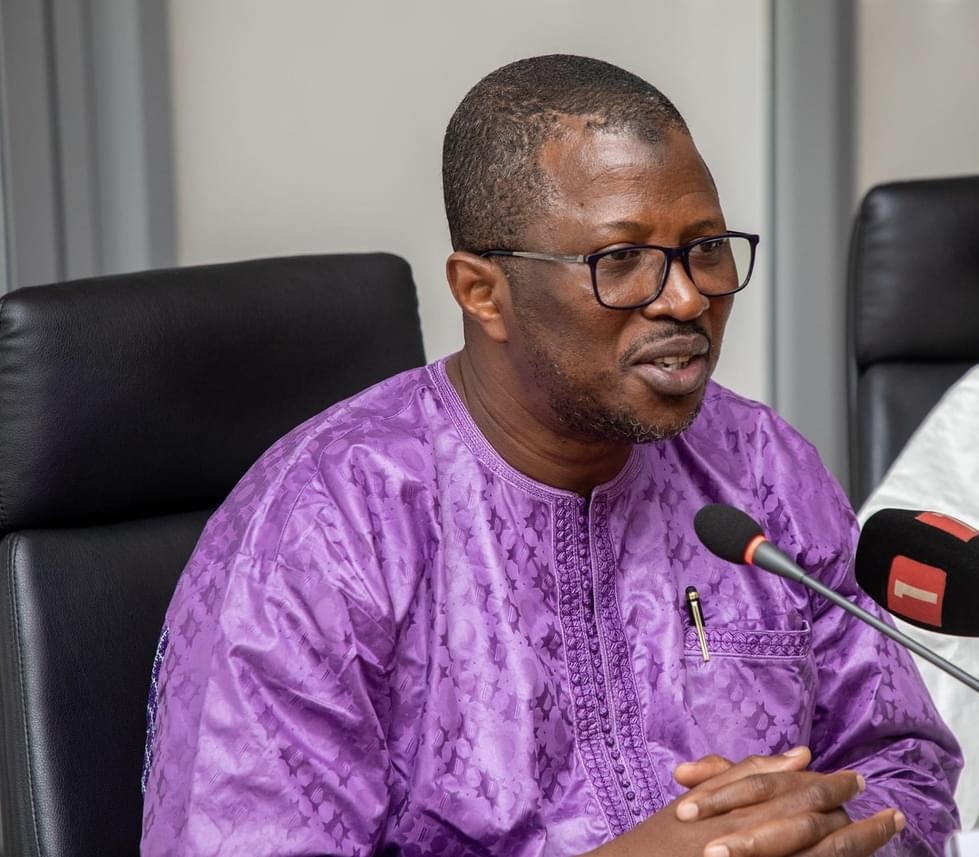Cement Importers Accuse Jah Oil and Government of Misinforming Gambians

By Buba Gagigo
The Cement Importers and Traders Association (CITA) in The Gambia has accused Jah Oil Company, the Ministry of Information, and the Ministry of Trade of spreading misinformation about the ongoing cement saga in the country.
At a press conference last week, Minister of Lands Hamat NK Bah stated that President Barrow’s government aims to protect local industries and prevent The Gambia from becoming a dumping ground for other countries’ products. Bah noted that their investigation revealed that 95 percent of local importers are non-Gambians.
Jah Oil Company has denied any increase in cement prices, blaming retailers for the hike while maintaining their factory price at D355 per bag. In response, local cement importers held a press conference on Sunday, accusing both the government and Jah Oil of misleading the public.
“Our dialogue with the government is ongoing, and we continue to engage in good faith, despite a coordinated misinformation campaign by Jah Oil, the Ministry of Information, trade, and their enablers. However, we will not be deterred and will continue to fight for our rights as independent businesses to operate and assume risks we hope will benefit The Gambia and her people. At the same time, Jah Oil, which has been in operations since 2010, continues to be bailed out by the government for their poor business decisions through special investment certificates, loans and loan guarantees and temporarily import bans designed specially to allow Jah to sell his stock at a price of his choosing. Make no mistake, Jah Oil needs the price of cement to go up if he is to service these meritless loans. And thus, the government is complicit as the guarantor of these loans. We must end this madness,” Momodou Jobe CITA Secretary said.
CITA argued that the policy is poorly planned and short-sighted, noting that they employ over 3,000 individuals, including drivers, apprentices, and labourers involved in loading and unloading cement.
They further claimed that bulk cement importers employ less than 800 people directly and described the claims of 5,000 direct/indirect employment as unfounded.
“Are our 3,000 direct employees, not human beings who must support their families? Why are they not relevant? We can appreciate the complexities of our trade relationship with Senegal and the need for a more balance trade agreement with Senegal. Sign us up, we are in full support. But let’s be honest, this is about protecting the business interests of one person. If we are going to ban imports from Senegal, perhaps we should turn away the basalt, or the sand as well. Do we not have farmers in the Gambia or a chicken or cashew processing factory that find it difficult to compete with cheaper imports? Maybe these industries should be protected, and we should ban the import of processed cashew or chicken.
“Where is the outcry for those industries or the farmers and their families? Let’s not fool ourselves; let’s not forget that the logistics industry provides a two-way service. If hundreds of trucks no longer go to Senegal, how will we export the chicken feed or the peanuts to Senegal. — The two-way traffic allows Gambians to export at a more economical transportation cost. Not only will the price of cement skyrocket, the price to ship anything to Senegal will also skyrocket. Perhaps the biggest oversight is our contribution of more than D340 million dalasis per quarter or D1.3 billion through import duties, bridge, and fuel tax,” he said.
CITA also refuted claims by bulk cement importers and the Ministries of Trade and Information that some of them are not Gambians and are responsible for the appreciation of the CFA.
“Let me maybe help them with how capital markets work. The CFA is pegged to the Euro, it is the dalasis that is devaluing against the Euro and all major global currencies. This is the weakest the dalasis has been in our lifetime due to our unsustainable debt load, and mismanagement of our economy with policies like this. The Gambia is in the bottom quartile for ease of doing business globally consistently. That should tell us something. Doesn’t NAWEC import electricity from Senegal, what does NAWEC use to buy that electricity? And when the bulk importers buy cement from Europe, do they not use Euros, the proxy for the CFA. —- And as it relates to not being Gambians, that is an insult to all Gambians.
“In closing, are we not a country of fair play — do we not have a free market. You don’t have to believe us, but it is a fact, monopolies innovate less, hire less people and always raise the price whenever given an opportunity in the absence of competition. We want to leave you with this thought: If Jah Oil sells cement, which he claims is 42.5 grade at a similar price to a Senegal import of 32.5 grade, why would any consumer in their right mind choose the Senegal import? It’s rhetorical, but this is why consumer choice is extremely important. Those consumers know what they are getting when they buy anything from Jah Oil. But now, the government wants to force them to buy “only” Jah Oil,” he concluded.


Comments are closed, but trackbacks and pingbacks are open.